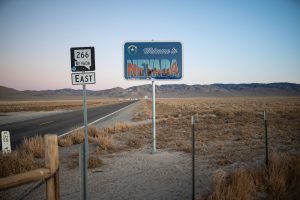A recent lawsuit filed in Delaware against Tripadvisor and its majority shareholder has brought attention to a potentially growing trend: companies seeking to move their incorporation from Delaware to Nevada to avoid Delaware’s stricter and established legal standards.
The lawsuit argues that the shift to Nevada is specifically designed to take advantage of Nevada’s “no liability regime,” which would make it more difficult for shareholders to hold the company's directors accountable if they breach their duties.
TripAdvisor's parent company, Liberty TripAdvisor, acknowledged in a proxy statement that board members and executives may be in conflict with shareholders over the conversion to Nevada incorporation.
Despite this, the board recommended that shareholders vote in favor of the move, citing a potential $250,000 a year savings in Delaware fees. However, the lawsuit argues that shareholders who are not allied with Gregory Maffei, chairman of both TripAdvisor and its parent, have essentially been left without a voice in the decision to abandon Delaware.
The move from Delaware to Nevada highlights the difference in state laws and regulations regarding corporate responsibility. Delaware has a well-established legal system that has become the go-to jurisdiction for incorporating businesses due to its predictable and pro-business laws. Nevada, on the other hand, has been gaining popularity in recent years due to its lack of corporate income tax, less stringent regulations, and "no liability regime."
However, the lawsuit filed against TripAdvisor and Liberty TripAdvisor raises concerns about the potential consequences of moving to a state with less corporate accountability. Some legal experts argue that Nevada's "no liability regime" could lead to a lack of transparency and accountability, potentially enabling companies to act with impunity. Critics say this could ultimately harm shareholders and consumers alike, and that Nevada's legal system is not equipped to handle the complex issues that often arise in corporate governance.
The outcome of the lawsuit against TripAdvisor and Liberty TripAdvisor could have significant implications for other companies considering a similar move to Nevada. It could also lead to a broader conversation about the role of state laws in corporate governance and the importance of holding companies accountable for their actions.
As companies continue to weigh the benefits and drawbacks of incorporating in different states, it remains to be seen whether the trend towards Nevada will continue or whether Delaware will remain the dominant player in corporate governance for years to come.






















